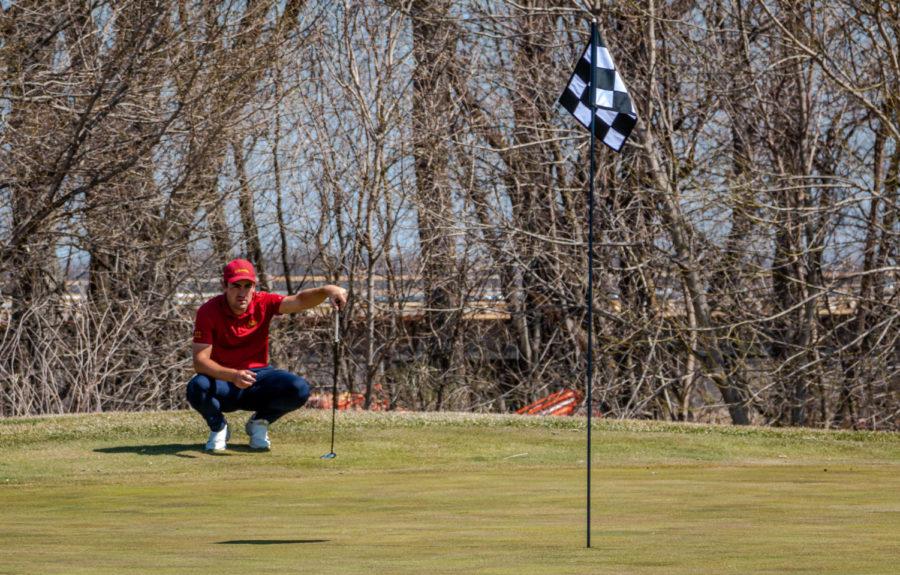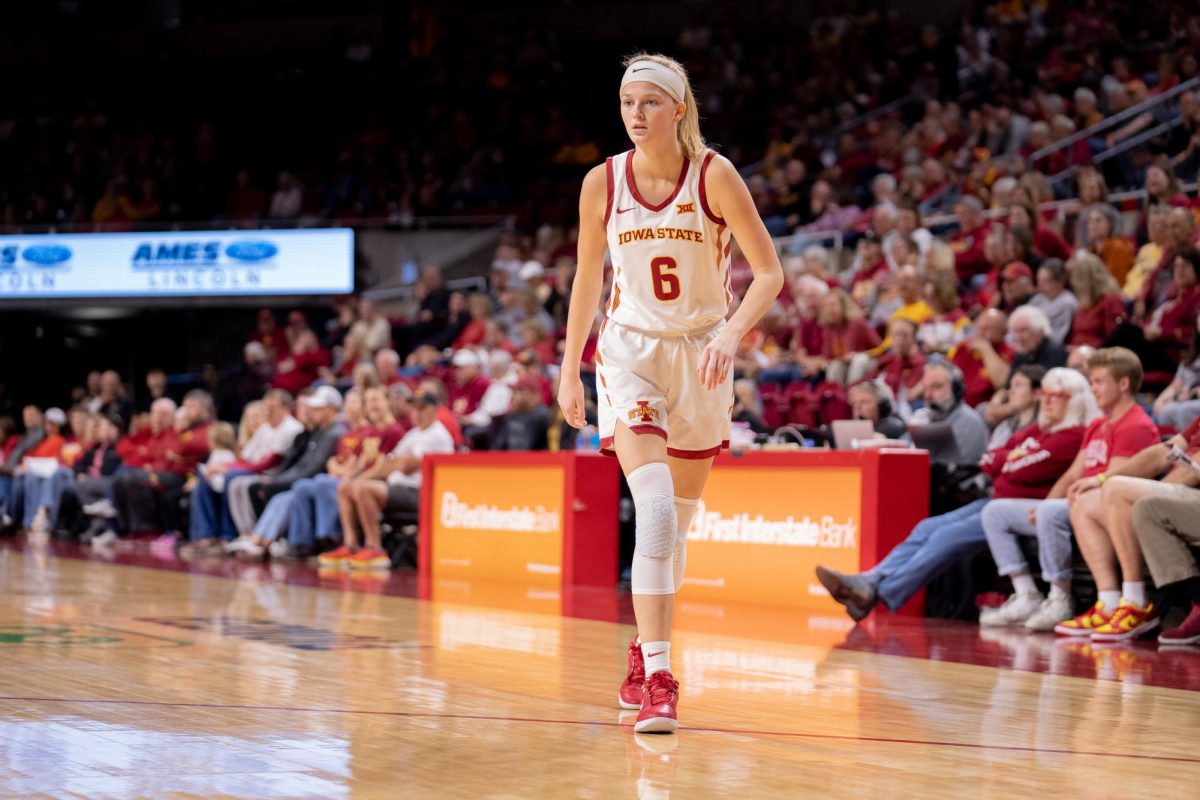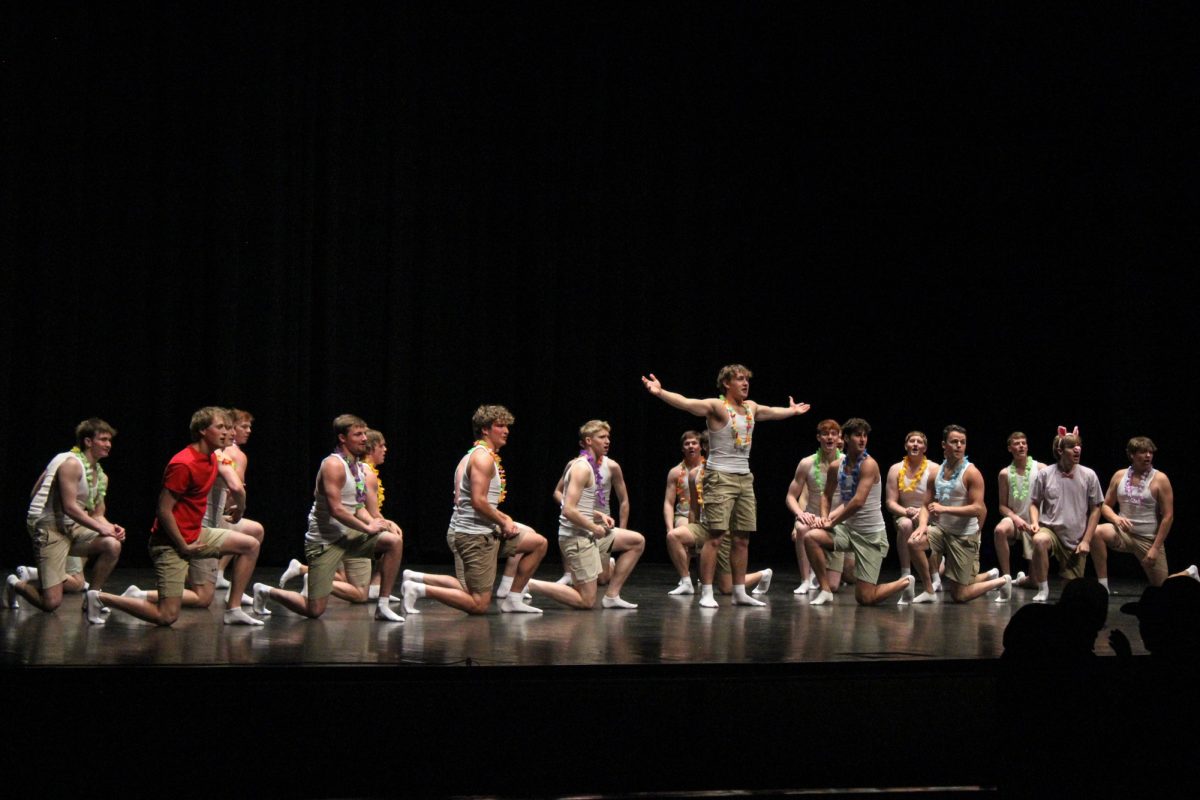SAFE liaisons tackle inclusive language in the Greek Community
November 6, 2014
Students Advocating For Everyone is an organization within the greek community made up of members who are, as of now, encouraging inclusive language.
In spring of 2013, all of the greek chapters filled out a survey about their knowledge and willingness to learn about the LGBTQ community. The survey showed 48 percent of the greek community were willing to learn more. The results were revealed fall of 2013 and, starting spring of 2014, the organization began.
“Instead of having a staff member from [the LGBT] office go into chapters and not really understand the characteristics and traits they share with one another, how impactful would it be if we had peers from the greek community educate the community on these types of topics?” said Devin Hall, graduate adviser.
While the spring semester was spent organizing, the group is now presenting at chapters.
“First, we start by talking about what we are here for and clarify that we are not here to change anyone’s minds – we are just here to challenge their perception and use of hurtful language because we know it’s there,” said Maria Archevald, sophomore in biology and chapter liaison.
Following the introduction, members watch a video showing the negative stereotypes of the greek community. After watching the video, liaisons challenge the ideas on why it is considered funny to show the hurtful language that can be used.
Using the discussion, the group talks about how the language can be offensive to different groups of people. They then open the conversation to offensive vocabulary being used on a daily basis.
Another video is shown about a man who does not use inclusive language. A male student speaks to a homosexual male student and makes negative comments toward a gay man’s identity, without knowing the person he is speaking to is gay.
The presentation addresses the LGBTQ community and brings awareness to words that might be offensive to people who were sexually assaulted, have autism, believe a certain religion or other issues.
To show the reality of homophobic language, liaisons show the website NoHomophobes.com, which displays all tweets of the day that include words and terms that could be offensive to the LGBTQ community.
Another source of technology to educate is an anonymous texting poll that allows students to voice comments that have offended them. Those comments are then displayed on a screen for the group to view how their peers are feeling.
With a positive response so far, the program is more than ready to give its first presentation to Archevald’s chapter, Delta Zeta, on Nov. 10.
Archevald said she has already felt support from her sorority after coming out two years ago.
“Not only are they excited to have us but they are kind of prepared to have the conversation,” Archevald said. “It’s kind of good that we are starting at a chapter that has been exposed to it and has been actively supportive.”
Archevald also helped those in her house understand where she was coming from.
“[Archevald] was not afraid to answer any questions we had,” said Amelia Medici, senior in industrial engineering and Delta Zeta president. “She was always open and willing to talk about it. Her being comfortable in her own story and being willing to share that with our chapter has made everyone’s eyes open.”
The local greek community isn’t the only greek area that has been exposed to inclusive language. National boards have consulted with the program in interest of the action steps they are taking in the community.
“Here at Iowa State, we are in a completely different environment then my friends down in Alabama [and] my friends down in Mississippi State,” Hall said. “Understanding where we are geographically and where we are politically really plays into the role of our communities tolerance and acceptance.”
The program is focused in the greek community, however are open to presenting and reaching out to other groups, and organizations.
“Everyone wants their organization to be exposed to diversity right now I think,” Archevald said. “You are always exposed to diversity, nowadays.”






